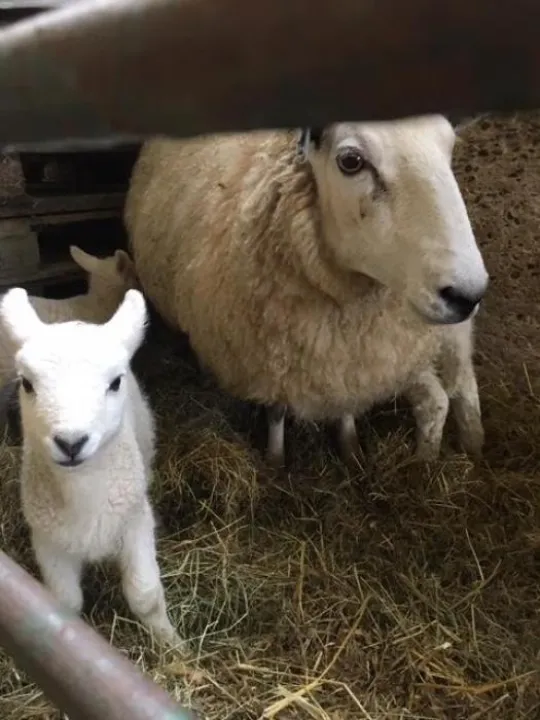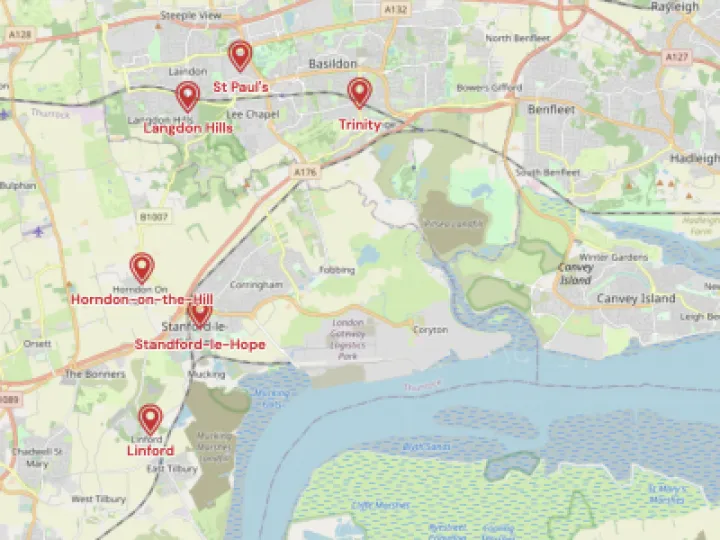Rea Valley's New Society
We have some exciting news in the Rea Valley Area! On July 15th our group of chapels gathered together to make a very big decision to become a 'new' amalgamated society by joining 8 chapels together as one. Asterley, Vron Gate, Worthen, Wattlesborough, Snailbeach, Minsterley, Stiperstones and Pontesbury will be known as Rea Valley Methodist Churches starting September 1st. In practical terms it means that we move from having 8 separate councils, treasurers, secretaries and bank accounts into one unified cohesive group. Our inspiration for this came from the Bible in a book called Acts (of the Apostles) where 'they gave everything up and had everything in common.'
Very few chapels in Britain have pioneered this route so this amalgamation is very experimental but also a Biblical way of living. This is a new time for us and we are committed to learning from our challenges and embracing our strengths. In an age where church attendance is in decline and traditions need to be upheld whilst God helps a new church emerge, it is important to recognise that we are better together. The response to this has been wonderful and several curious folks have asked some really good questions. Here are some of those questions.
What is a 'new society'? To understand that we need to know a bit about Methodist history. John Wesley was part of the Church of England and in those days started a revival in the Church. Within that revival small groups started to form. Those small groups were called Societies and people could be members of these societies. The societies were also made up of classes or bands of people. Nowadays, a society is usually a chapel which is made up of members and community members. The term society is a term we use as part of our Methodist tradition. Whilst a society is not limited to being a chapel that is often how we refer to the group of people that meet for the life and works of the church. For more information see the Methodist Church website on Societies and Classes https://www.methodist.org.uk/about-us/the-methodist-church/what-is-distinctive-about-methodism/small-groups/* +.11(here )
Why did you amalgamate? This happened partly out of circumstance and partly out of responding to God's call to minister to our communities. Many of our chapels did not have membership requirements to remain operational chapels. By joining together it extends our opportunities to respond to God's call in our communities. By not joining together the likelihood that some chapels would need to close in the near future would have been much greater. One of our chapels with 4 members will become a Celebration Chapel and will have one major worship service per quarter. That means the chapel can remain open but reduce the amount of committent required to have weekly services. This allows us to have a community presence offering the Good News and opportunities for weekly worshippers to worship where they wish to.
What changes will there be? On the surface there won't be many changes. The changes will mostly be from a governance perspective. The minister (Presbyter) has pastoral oversight over 8 chapels and that means 8 different meetings on a frequent basis. By joining our chapels together it not only creates more time for the minister to spend on the essentials of ministry it also means that we manage our time more wisely. It also means that people can tithe using standing order which many people prefer as it means that the church receives their tithe no matter where they worship. It also means if someone misses a worship service they don't need to make up for it the next week.
Will there be a central chapel? That's the wonder of this all! We keep all our chapels with no central house of worship. In some cases, people preferred to worship in their 'own' chapel so that their tithes will benefit their chapel directly. If a weekly worship was missed it could mean that the chapel lost tithes that are so vital to the life of the church. By being one new society with a common bank account, where one chooses to worship will not impact the financial health of the church.
How will worship change? We hope it changes for the better with minimal impact to weekly worship. With a larger group of people we can now have worship groups that can help plan cohesive worship across our area. For instance with Harvest Festivals, we can arrange various themes to be shared in each chapel as each chapel loves to have Harvest Festivals. This grouping allows us to have a common theme with different aspects in each chapel so that our spiritual lives are nourished. It also means that people can worship at any of our chapels without worrying that their tithes won't support their own chapel.
This also means that if a chapel is struggling to meet the needs of their chapel (for instance hosting a funeral and stewards are on holiday, or a wedding is to take place and a chapel needs help preparing) the chapel can call on another chapel to help them knowing that in turn they may be called to help in another situation.
What happens if one chapel does more work than another? There are some chapels that have more fundraisers and activities than others and this is common in many chapels. Each chapel still needs to fulfil their obligations but each chapel offers their own gifts and talents. It is important to remember that our tithes are not just of our money but also our talents and time. If we are struggling to meet our budgets that information will be shared to seek ways to ensure our common budget is met. We're all in this together!
What challenges does this pose? With any pioneering adventure there are seen and unforeseen challenges. There could be temptations that some chapels feel that now we have decided to do this the work is finished. We have made the decision to try this and now we need to do some work to see where God is leading us next. The important thing is that we are 'committed to making new mistakes', meaning that we will try our best not to keep doing the same thing and expecting a different out come.
Jesus disciples often asked who would be in the Kingdom with him or who was the greatest disciple. Wanting to be held in high esteem is a human trait that is not uncommon in chapels and some of those dynamics can impact chapel life. We also recognise that chapels often have people who have held leadership positions for a long time. Those passionate people recognise that being vulnerable is part of good leadership within the chapels. There are times in chapel life where some voices are heard over others and those voices sometimes dominate conversations. We have decided that our leadership in our chapels requires some yielding to one another and to recognise that our passion is a common one- to ensure our chapels in rural communities are vibrant.
We are also really thrilled that the Arthur Rank Centre, an important group who works with rural communities will be coming to visit us on August 15th to see how this model of church might be helpful in other areas.
If your chapel is interested in knowing how this might work for your area, please contact Revd. Shalome MacNeill Cooper for more information.
Quick Links
Get In Touch
c/o The Methodist Centre
Lansdowne Road
Bayston Hill
Shrewsbury
SY3 0HZ


